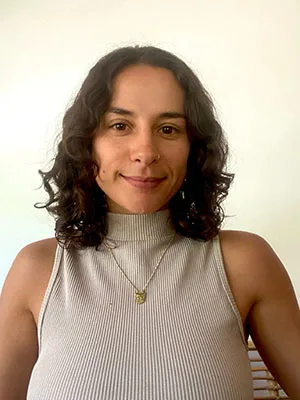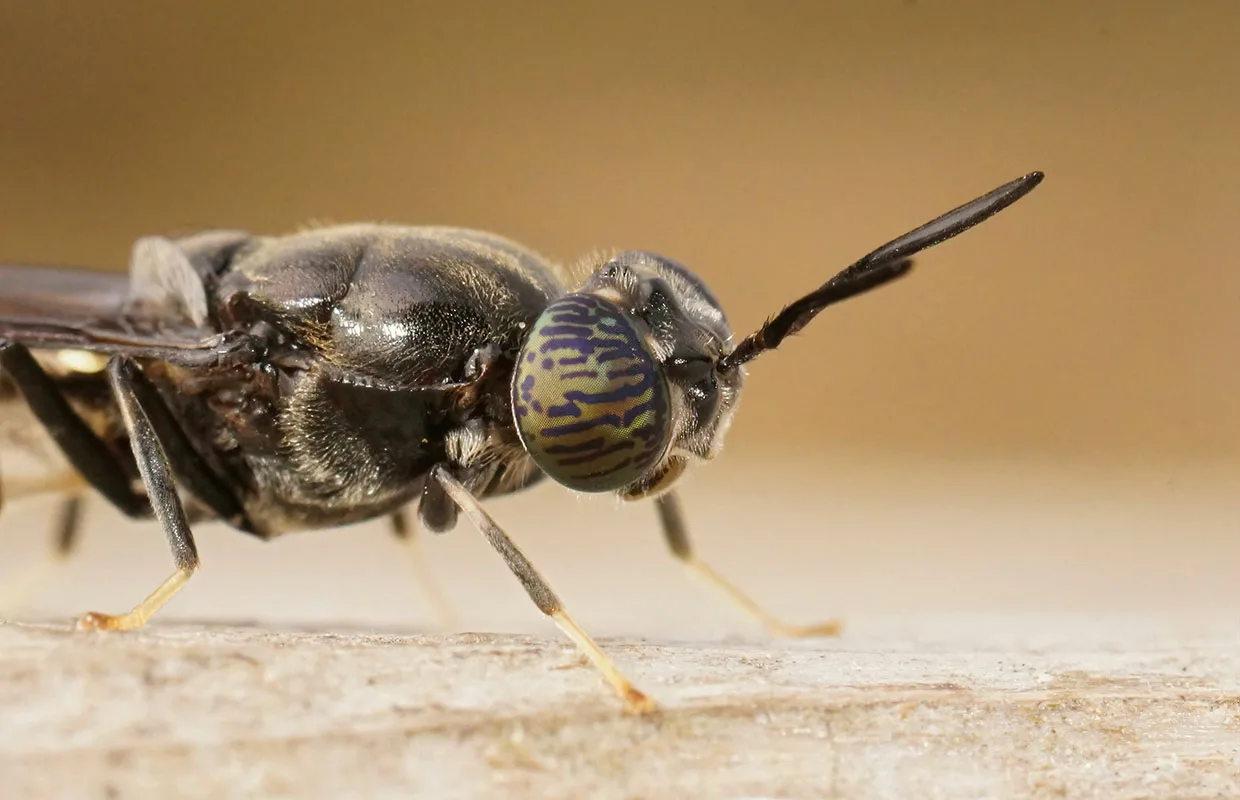Black soldier flies are an unassuming insect with the potential to revolutionise African agriculture, writes Maya Zaken, co-Founder of Philafeed.
HARNESSING THE POWER OF BLACK SOLDIER FLIES FOR AFRICA’S AGRICULTURAL FUTURE
Growing up, my grandmother would visit us and spend all her time in the kitchen.
She cooked tirelessly, filling our plates before we even realised we were hungry. It made me uncomfortable. One night, I asked my aunt why my grandmother did this.
“When I was growing up, food was scarce,” my aunt told me. “Bread was a luxury. This is how I show love.”
This was the first time I truly felt the true weight of food inequality – how could my grandmother grow up with so little whilst I had so much?
The second time I had that feeling was whilst volunteering in Kya Sands, South Africa. Week in and week out, we collected money to buy food and handed it out to children as they lined up in front of us.
One Sunday, as I handed out food, I looked beyond the kids and saw an empty, littered field. It hit me – this land could be feeding them. This was the moment when I began thinking about food systems in Africa.
I had no background in agriculture, so I threw myself into learning about it. With the climate crisis raging, circular solutions to agriculture came up again and again.
That’s when I came across the black soldier fly.

TRANSFORMING FOOD WASTE
I found that these ominously named flies weren’t pests. They didn’t eat as adults, didn’t spread disease, and only laid eggs near organic waste.
Their real (agricultural) magic starts at the larvae stage, as these voracious juveniles consume food waste at an astonishing rate, converting it into two invaluable resources.
First, their excrement, known as “frass”, is a nutrient-rich organic fertiliser that improves soil health. Second, the larvae themselves, packed with up to 42 percent protein and essential amino acids, offer a sustainable, high-quality alternative to conventional animal feed.
The black solider fly transforms food waste into not one but two powerful agricultural resources and can help cure some of the hidden costs of our environment-taxing food systems.
Africa’s demand for animal feed is surging. According to the Global Feed Survey 2020, the continent required 43.7 million tonnes of animal feed, a figure set to rise sharply due to population growth and increasing meat consumption.
However, conventional feed production has severe ecological consequences. Industrial feed farming depletes soil, destroys biodiversity, and contributes to deforestation, particularly for soy plantations. Overfishing exacerbates the crisis, as wild fish stocks are drained to produce fishmeal, a primary ingredient in livestock feed.
Meanwhile, food waste remains an immense, underutilised resource. The Food and Agriculture Organisation (FAO) estimates that one-third of all food produced globally – approximately 1.3 billion tonnes – is wasted each year, contributing to methane emissions that are 25 times more potent than carbon dioxide.
Black soldier fly farming presents a unique opportunity to transform this waste into a regenerative agricultural asset and offers ways to help cure and aid these pressing, existential issues for African farming.
The insect could solve food waste, animal feed, and soil health – all at once.
ADOPTING CIRCULAR SOLUTIONS
The question then became – how do we integrate black soldier flies in a way that drives the greatest systemic change?
In optimal conditions – protected from pests, humidity fluctuations, and extreme temperatures – larvae can break down 1.5 tonnes of waste in just seven to 10 days.
The key lies in deploying decentralised, modular rearing units directly on farms. These units are low-cost, off-grid compatible, and adaptable to diverse farming environments, making them particularly well-suited for Africa’s predominantly smallholder farming sector.
By placing black soldier fly farming containers on-site, farmers can harvest larvae and feed them directly to livestock, eliminating the carbon-intensive processes of transport, processing, and packaging, typically the most significant cost barriers in feed production.
The resulting closed-loop system enhances productivity whilst reducing reliance on costly imported feeds, synthetic fertilisers, and waste disposal infrastructure.
As momentum builds around sustainable agriculture, there has been a surge in interest for small-scale and decentralised operations. Luckily for Africa, smallholder farms make up the majority of agricultural production.
With more recognition of the power of localised waste-to-resource solutions, there’s a unique opportunity for African farmers to harness the potential of black soldier flies.
60 percent of sub-Saharan Africa’s population is engaged in agriculture; smallholder farms therefore form the backbone of the continent’s food production.
Yet, these farmers often face systemic challenges, including limited access to modern technologies, fertilisers, and infrastructure.
By adopting circular solutions such as black soldier fly farming, they can overcome these hurdles, enhancing food security, soil health, and economic resilience.
The economic case is compelling. A study published in Nature Food in 2021 found that insect-based protein production requires up to 98 percent less land and emits 75 percent fewer greenhouse gases (GHGs) than traditional livestock farming.
By integrating black soldier flies, African farmers can diversify their revenue streams, reduce waste, and boost farm productivity.
Circular solutions can also help overcome challenges like limited access to modern technologies, fertilisers, and infrastructure, creating more efficient, sustainable farms that support resilient, regenerative food systems for people, soil, and communities.
The future of food isn’t about scaling bigger – it’s about scaling smarter. By embedding solutions where they’re needed most and breaking free from wasteful supply chains, we can transform agriculture from mere production to full regeneration.
And the best part? It’s already happening.






























